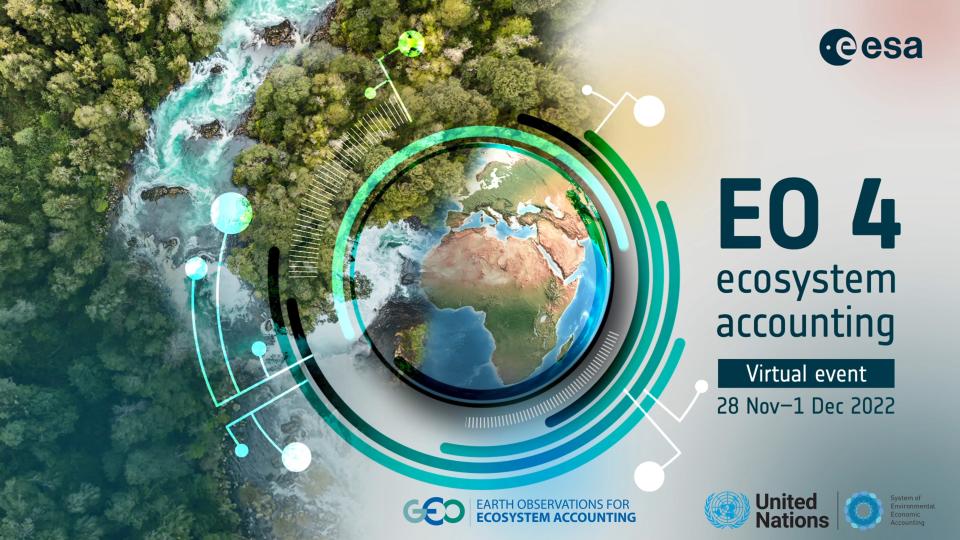Advancing the Use of Earth Observations in Ecosystem Accounting

The European Space Agency (ESA), the Environmental-Economic Accounts section of the United Nations Statistics Division (UNSD) and the Earth Observation for Ecosystem Accounts initiative of the Group on Earth Observations (GEO EO4EA) held an online workshop on Advancing the Use of Earth Observations in Ecosystem Accounting during the week November 28 to December 1, 2022.
In March 2022, the UN Statistical Commission adopted the implementation strategy for the System of Environmental-Economic Accounting Ecosystem Accounting (SEEA EA), which emphasizes the importance of scaling up implementation in countries using national data in combination with Earth Observation (EO).
Ecosystem Accounts are spatially explicit and therefore earth observation is recognized as a major source of information for ecosystem accounting. The availability of EO data at appropriate scales, combined with the emergence of advanced digital technologies and modelling, provides countries with unprecedented opportunities to monitor the extent and condition of their ecosystems, determine ecosystem services, and use this information to develop ecosystem accounts.
The workshop provided an opportunity to bring together the Earth Observation and Ecosystem Accounting communities to obtain a better understanding of the state of the art of applying earth observation to the measurement of ecosystem accounting and to obtain inputs in the development of a roadmap for advancing earth observation for natural capital accounting.
More than 700 participants from over 90 countries registered, representing all continents. The first day of the workshop set the stage with a series of keynote presentations set the stage, complemented by a high-level panel and 2 panels on the monitoring programme of international conventions and national implementation examples. The importance of Earth Observation, the need to develop closer partnership with the earth observation community and the importance of leveraging existing products for the compilation of ecosystem accounts and their use in official statistics were the key messages. The remaining three days were organized according to ecosystem accounts - extent, condition, and services - and thematic accounts -urban ecosystems, forests, marine and coastal ecosystems, and agroecosystems. The last session consisted on the operationalization of the ecosystem accounts. All sessions provided a background of the accounts as presented in the SEEA EA followed by practical examples on the implementation using earth observations and a discussion on possible areas for further work.
The workshop will serve as an input in the development of a roadmap for earth observation for ecosystem accounting to support the implementation of ecosystem accounting in countries to be included as part of the work programme of the UNCEEA.
Find the presentations at the event page here.
